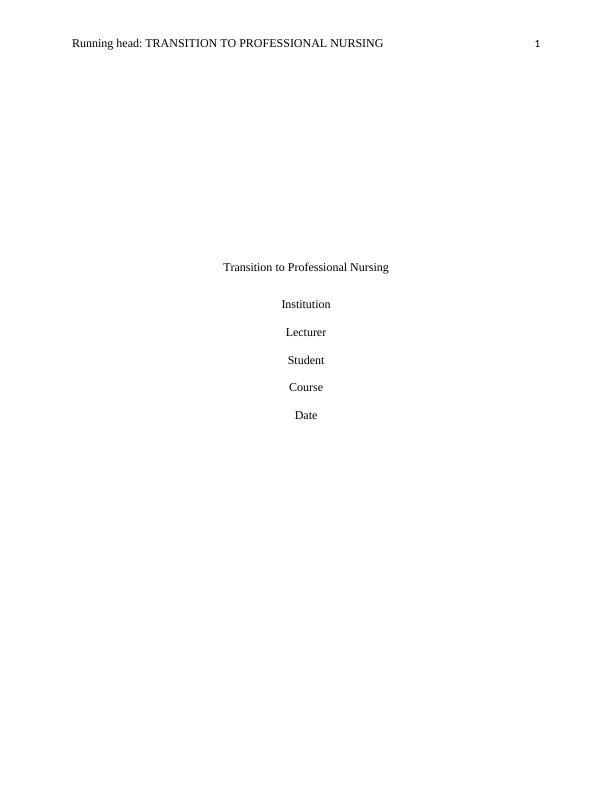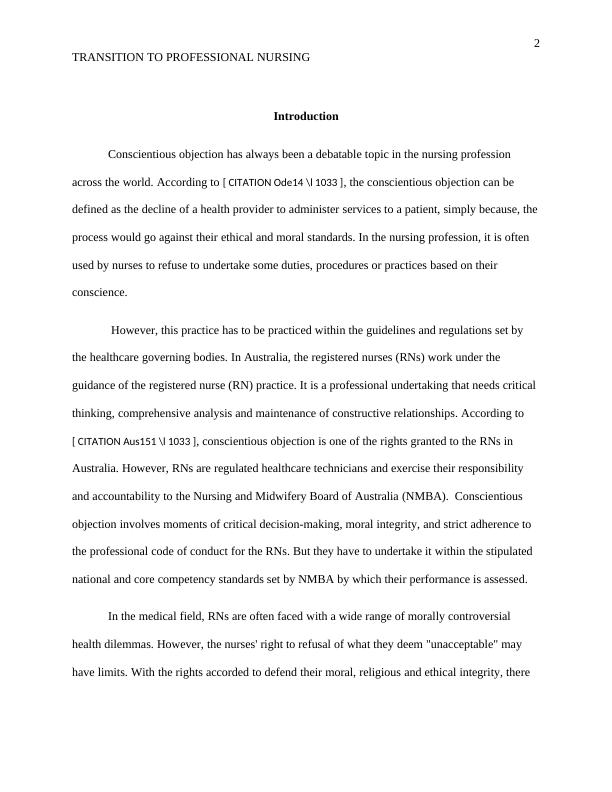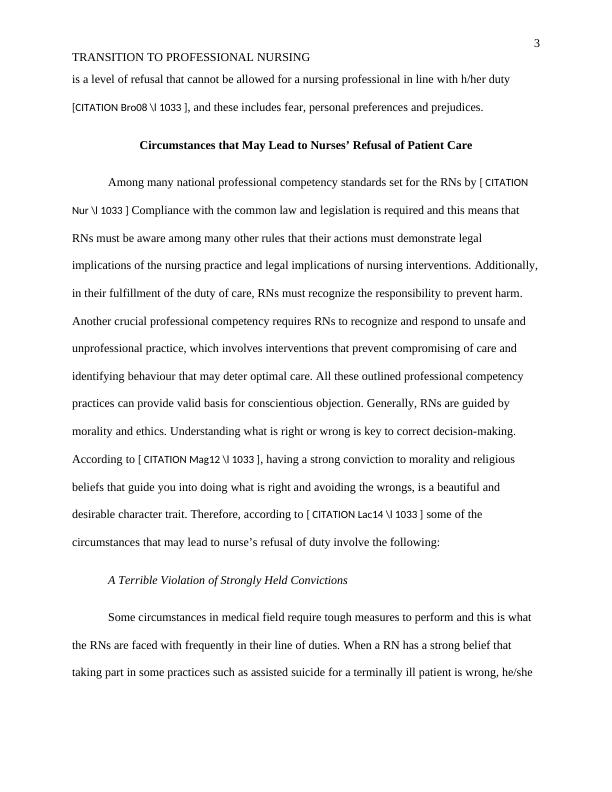Transition to Professional Nursing | Assignment
9 Pages2039 Words108 Views
Added on 2020-03-28
Transition to Professional Nursing | Assignment
Added on 2020-03-28
ShareRelated Documents
End of preview
Want to access all the pages? Upload your documents or become a member.
Ethical and Legal Issues in Nursing Practice: A Case Study on Social Media Usage
|12
|2491
|272
Legal and Professional Issues in Nursing Doc
|12
|3345
|243
Ethical Dilemma in Nursing Students Case Study 2022
|9
|3671
|49
REM Framework: Registered Nurses
|6
|985
|36
Nursing Assessment Australia 2022
|9
|2789
|15
Role of Registered Nurse in Taking Consent from Infants, Children, and Young People
|6
|1568
|98



